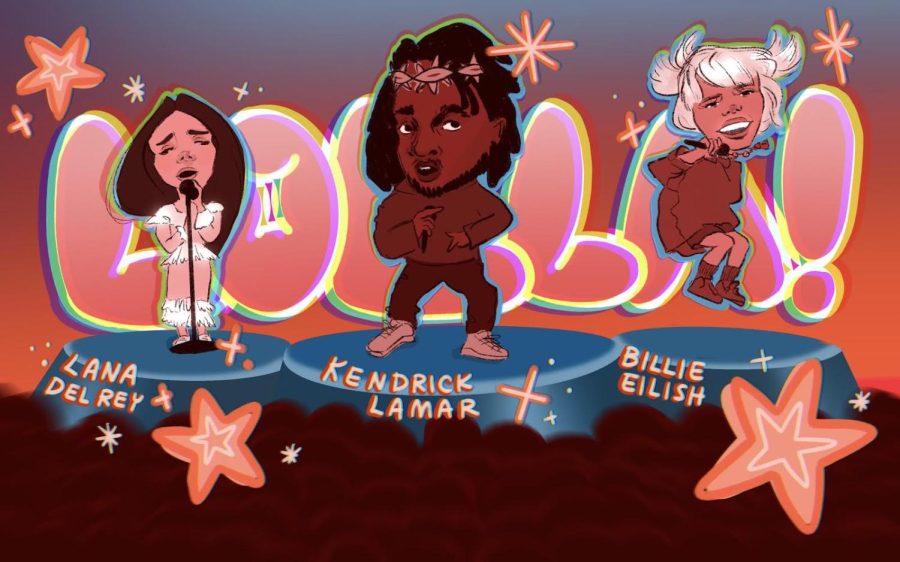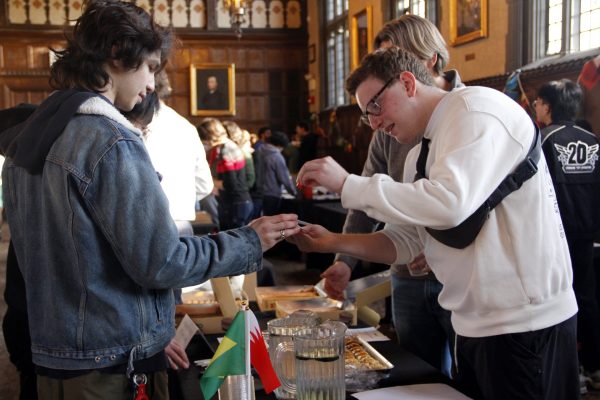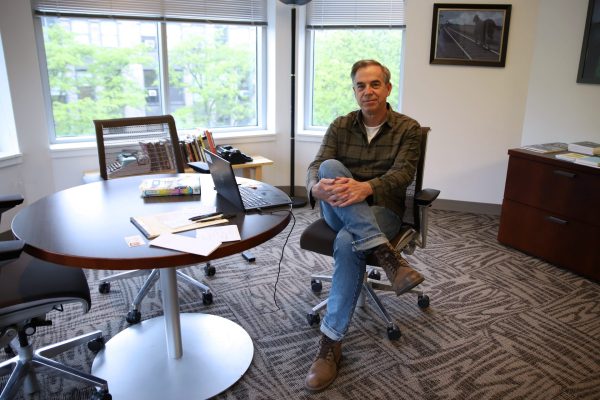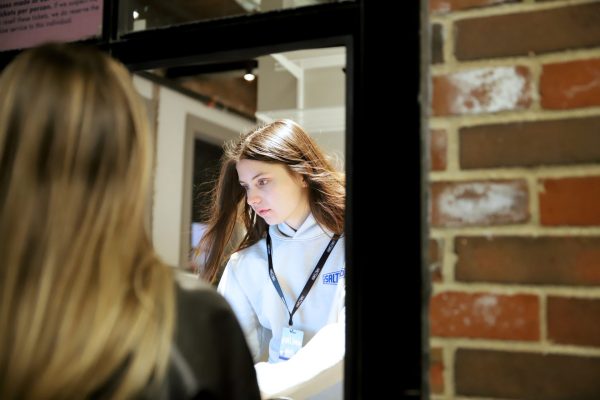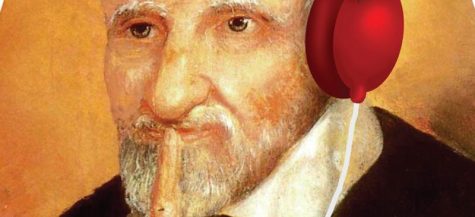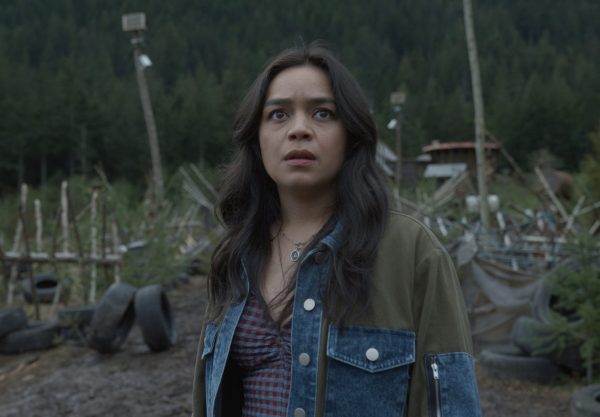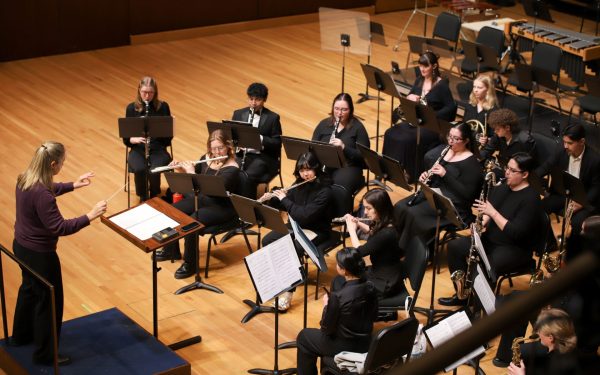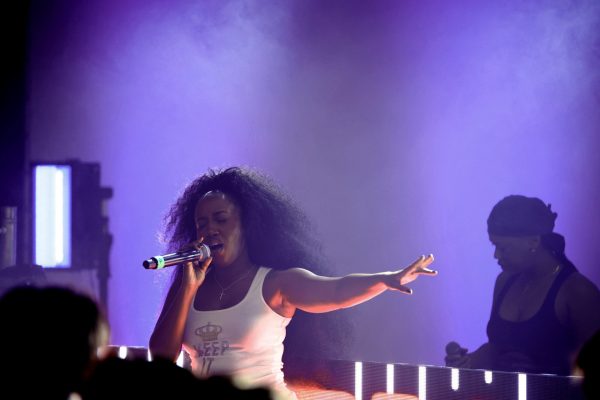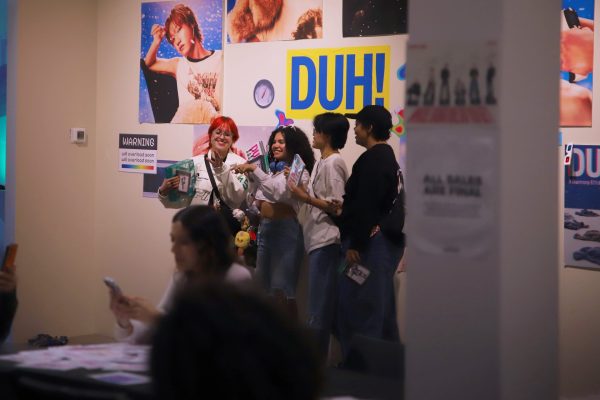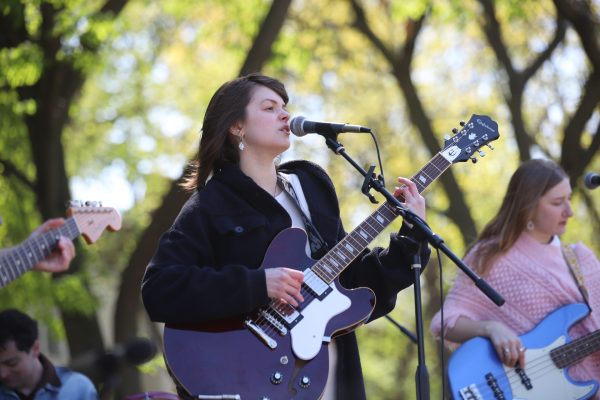Lollapalooza lineup amps up student excitement
Lollapalooza announced this year’s lineup on March 21, exciting music-lovers and festival goers alike with headliners including Kendrick Lamar, The 1975 and Lana Del Ray. The variety of genres and inclusion of local bands connects the students to their city and to their favorite artists.
“It’s hard not to compare your city to others in what you have, what they don’t and vice versa,” freshman Dane Dal Bianco said. “Having a significant music festival with really big artists coming here is really cool. The entire culture of the city changes for those few days while everyone migrates to this one area.”
This year’s Lollapalooza will be held from Aug. 3-6. The event originated as a touring festival but settled down in Grant Park in 2005, cementing itself as a staple of Chicago identity.
College of Communication professor Daniel Makagon said part of this comes from Lollapalooza’s ability to solidify Chicago as a destination city and stage for live music.
“For a festival like this, one of the biggest music events in the nation, to be set in Chicago versus Los Angeles or New York, it helps put us on the map,” Makagon said. “It also helps put Chicago on a global map because in the case of Lollapalooza, there are multiple Lollapaloozas but they’re all in major markets around the world.“
Emily Robinson, president of DePaul Music Business Organization and junior, has heard only good things about this year’s lineup on social media and from friends. She attributes this to the lineup’s diversity seen in the addition of Korean artists like Tomorrow X Together and DPR Live that help appease concertgoers from any genre.
“I feel like last year there was so much discourse with the lineup because some people loved it while some people were very underwhelmed,” Robinson said. “This year though I’ve seen literally nothing but positive feedback which is extremely hard to do given the amount of different genres they’re trying to cover.”
Dal Bianco is most excited to see his favorite artist Kendrick Lamar. He also recognized six of the smaller artists on the list which he said is more than double from previous years.
“In the bigger pool of obscure artists, there are a few bands in the indie realm that I gravitated toward as well as [Kendrick Lamar] which is a big plus,” Dal Bianco said.
Robinson attended two previous Lollapaloozas and said the festival curates a lineup that is geared toward mainstream pop.
“[Lollapalooza] generally steers clear from country, jazz and Latin artists because those festivals already exist within the Chicago music scene that cater to those music groups more specifically,” Robinson said. “Instead, they’re covering their bases when it comes to the more Top 40 hits of more mainstream genres.”
Makagon said any debate about Lollapalooza, including the lineup, brings more interest to what is happening in Chicago. He believes no matter how Chicago residents view Lollapalooza, in favor or against the drastic tourism spike for that weekend and the perceived annoyance it may bring, it is important as an income generator for the city.
Lollapalooza, and similar music festivals in the area, received criticism from Chicago residents for destruction to local parks, its worsening of inequality in the city, and impacts on COVID-19 safety.
“The festival pays a lot of money to get access to the park that allows for repair and maintenance of Grant Park even after the festival is gone so local residents benefit from that,” Makagon said. “It does put a lot more people in that space at one time though. There are probably mixed reactions, but at the end of the day, it’s good for Chicago.”
Dal Bianco is from a nearby suburb and said having the festival in the city is a point of pride for residents that helps create a stronger community based on music.
“As far as I understand, Chicago still has the stigma of this murder rate and crime rate that are high, but things like Lollapalooza kind of show a brighter side,” Dal Bianco said. “This is a community that has all gotten together and shares this love of music and is able to bring in artists like Billie Eilish and Kendrick Lamar into our city regardless.”
For Robinson the festival is important because of its impact on the music industry and the art community behind it. She said the job opportunities and experiences it creates bring attention to Chicago as a growing hub for music.
“There’s not really a massive music industry here in Chicago so it allows for that ecosystem to grow year after year with the festival gaining in popularity and notoriety nation and world wide,” Robinson said. “It helps people get their foot in the door with this industry especially within the greater arts that benefit from these Lollapalooza crowds.”


